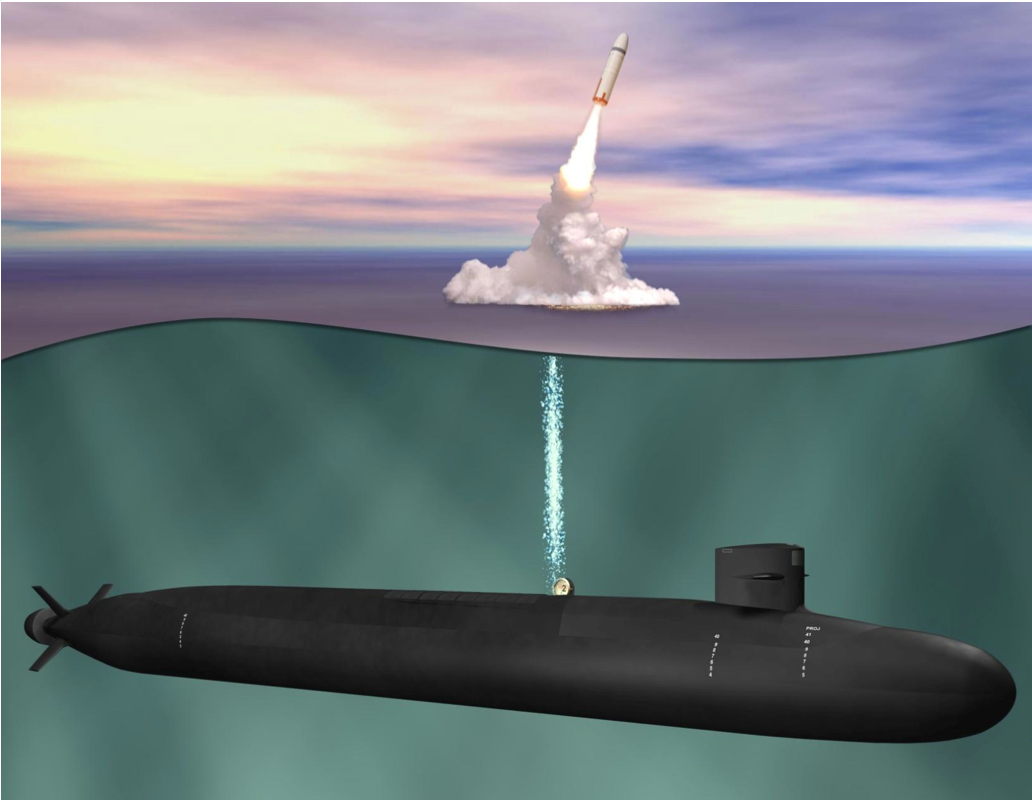
A key manufacturer of missile tubes for the Columbia-class submarine program is weighing not building anymore after its current commitment, leaving only one company to build the critical component for the Navy’s next ballistic missile submarine.
BWX Technologies is discussing its future missile tube work with Columbia-class prime contractor General Dynamics Electric Boat, but the company has not yet firmed up a contract, Rex Geveden, chief executive of BWX, told analysts during a Tuesday morning conference call. The current order of missile tubes is expected to be completed by 2021.
“At this point, we have not received any incremental orders for missile tube continuous production. As we have mentioned on prior calls, in the absence of any additional orders we plan to reallocate most of that CAPEX to support future growth in the core of Navy business,” Geveden said.
The production facilities for missile tubes can switch over to making the nuclear reactors BWX builds for the Columbia-class and Virginia-class submarines and the Ford-class aircraft carriers, he said.
The switch wouldn’t cost much capital investment, since the heavy equipment can be used to manufacture both products, Geveden said. If BWX does pivot its missile tube manufacturing facilities to nuclear reactor work, the company will save about $10 million, as BWX would not have to invest as much into expanding other reactor-build facilities.
“Right now, we have more work than we have capacity for,” Geveden said of BWX’s reactor business.
During the last quarter, Geveden said, BWX hired 100 new workers to meet demand, which increased with the Navy’s plan to buy a third Virginia-class submarine during Fiscal Year 2020. The Navy had been on pace to buy two Virginia-class submarines a year.
“Because of the volume, because of the demand signal, we have mandatory over-time going at all of our plants, all five of our North American nuclear reactor plants,” Geveden said.
With missile tube production, BWX faces twin challenges of finding and retaining highly trained workers while trying to earn a profit manufacturing complex products with little commercial appeal. BWX is not the only firm facing these pressures. The health of the defense industrial base is highlighted in Pentagon report released in October which details how scores of firms have succumbed to the same pressures facing BWX’s missile tube business.
Among the report’s findings, the shipbuilding industry shrunk tremendously since 2000. Manufacturers and suppliers left the industry, limiting competition and, in some cases, forcing the Navy to rely on a single sole-source supplier for critical components.
“These companies struggle to survive and lack the resources needed to invest in innovative technology,” the report states, detailing the pressure for firms to remain profitable. “Expanding the number of companies involved in Navy shipbuilding is important to maintaining a healthy industrial base that can fulfill the 355-ship fleet and support the Navy’s long-range shipbuilding plan.”
A tight labor pool compounds the challenge facing firms, the report says. Since the number of shipbuilding firms has decreased, the total number of shipbuilding workers has also decreased and is expected to continue shrinking, the report states. This contraction will become more dire because, as the number of jobs decreases, fewer new workers will enter fields critical to shipbuilding, such as ship-fitting, welding and casting.
In BWX’s case, the firm has added new workers, but training them takes a significant amount of time and presents risks to the company, Geveden said.
Last year, BWX had to halt missile tube production when it discovered a problem with its process for using ultrasonic equipment to inspect long, complex welds. Repairing the problem cost BWX $27 million and required the company to improve its inspection and training efforts.
“There is a pathway to stay in the (missile tube) business if we want to do it. I think the ultimate customer, the Navy and NAVSEA (Naval Sea Systems Command), would want more than one supplier,” Geveden said. “We’re not interested in the future orders unless we do have a way to make money on these orders.”





